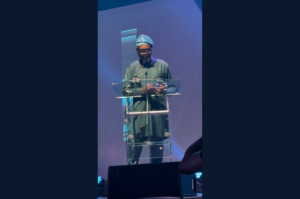The reality is that we don’t walk as much these days. The days of walking long distances through city streets are almost over. Think about it, how much of our travels are made on foot? Trains, buses, and cars–a whole lot of them–take us places. More importantly, though, modern technology has changed the way we experience our cities when we move about in it. What is different about the way we experience space when we are directed by the GPS on our mobile phones while the teeming crowd around us is tuned out with music blasting out of our earphones? We know that technology is making us experience the spaces of our world differently. The question seems to be what the implications these changes might be. Do we own our spaces any less if we don’t walk it as we ought? These are some of the things that Will Self writes about in this nice piece on politics and walking. HERE.
No longer subjected to the measure of man – or woman – or her oversight, the city has already acquired distorted lineaments: vastly extended thoroughfares are lined by cul-de-sacs…Suburbia, and the inter-zone between the city proper and its rural hinterland, is the tangible form of this disregard, being a collection of locations that no longer convey any sense of place. — Will Self READ MORE
He also touches on a set of novels about walking. I would add to his list W. G. Sebald‘s Austerlitz, Teju Cole‘s Open city, Rilke‘s Malte Laurid Brigge, and Kane‘s Ambiguous Adventure.
Will Self is a British novelist. I haven’t read any of his novels, but I have heard good things. His most recent book is Walking to Hollywood (2010). He’s a satirist of sorts. If you like Oscar Wilde and Jonathan Swist, you might like Will Self.
Will Self on his book Walking to Hollywood.









COMMENTS -
Reader Interactions